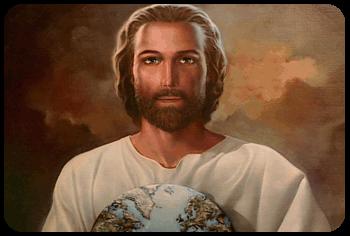| |
|
 |
|
**List: Wend Ministry the Bible ( the Bible )
WENDISH. UPPER LUSATIAN.--1860 S. Bagster [Info only: Gothic Character n.d. John 1:1-14 unknown.] WENDISH. LOWER LUSATIAN.--1860 S. Bagster [Info only: Gothic Character n.d. John 1:1-14 unknown.] |

Wend Bible History (3) 
**List: Wend Ministry
the Bible ( the Bible )
Wend...
WENDISH, UPPER AND LOWER. "THE Latin term, Venedi, with its corresponding German form, Wenden, originally applied indiscrimi-
nately to all the members of the Sclavonic family, has become the specific appellation of a Sclavonic
tribe located in Upper and Lower Lusatia. These people, who have preserved their separate
nationality in the midst of a Teutonic population, number about 144,000 individuals, of whom
60,000 live under the Saxon, and the remainder under the Prussian dominion; about 10,000 belong
to the Roman Catholic, and the rest to the Lutheran Church. Two dialects are predominant among
them, of which that of Upper Lusatia bears the strongest resemblance to Bohemian, and that ofLower Lusatia to Polish. In both dialects, the use of the article and various peculiarities of con-
--The Bible of Every Land. (1860, Second Edition) Samuel Bagster [Info only]
struction have been borrowed from the German; yet the characteristics of the original Sclavonic are
still so fully retained, that when Dr. Pinkerton was travelling through the country he was enabled,
merely by his knowledge of Russian, to comprehend much that was said by the peasantry. The
German language is very generally spoken by the wealthier classes, and, in all probability, will
eventually supersede the Wendish.
Attempts seem to have been made at an early period to translate portions of the Scriptures into
Wendish, for, in 1574, a translation of the seven penitential Psalms was published by a pastor of one
of the churches. The Gospels of St. Matthew and St. Mark were translated into the same language,
and printed in 1670, at Budissen, or Bautzen, in Upper Lusatia; and the Epistles to the Romans and
Galatlans were translated and printed in 1694, by Michael Frencelius, or Frenzeln, a native of Cosela,
in Lusatia, and Lutheran minister of Postwic. Another translation of the Gospels and Epistles was
executed by Paul Prætor, Matthaei, and three other translators, and published at Bautzen in 1695, by
the express order of the States of Upper Lusatia. In 1703 the Psalms, and in 1706 the entire New
Testament, translated by Michael Frenzeln, were printed, the former at Budissen, the latter at Zittau,
at the expense of Lady Gersdorf, grandmother of Count Zinzendorf, for gratuitous distribution among
the poor. A version of the entire Scriptures, in Upper Wendish, appeared in 1728, at Budissen,
translated by four pastors of the Lutheran Church. Eleven years were devoted by these pastors to this
translation, which is said strictly to follow the German version of Luther. An amended edition
appeared at Budissen in 1742, and a third edition at the same place in 1797. Another version in
Upper Wendish was prepared by Swotlie, for the use of Roman Catholics. It still exists in MS., and
has never been printed.
Only one version of the Scriptures exists in the Lower Wendish dialect. The New Testament,
translated by Gottlieb Fabricio, or Fabricius, was printed at Kahren, where Fabricius was minister, in
1709. It was a translation from the German, and appeared with the German text. It was reprinted
in 1728 and 1775. The first edition of the Old Testament was published separately in 1796, by
Fritze.
In 1814, in consequence of a letter from Dr. Pinkerton, the British and Foreign Bible Committee
agreed to assist the Dresden Society in printing an edition of 3000 copies of the version of 1728, for
Upper Lusatia. The edition was completed in 1817, under the care of a printing committee of
clergymen. In 1816, at the request of Dr. Pinkerton, a similar edition of 3000 copies was undertaken
for Lower Lusatia; but, owing to the want of paper and other causes, the printing was not commenced
till 1818. An edition, printed by the Society for the Upper Lusatians, left the press at Güns in 1849,
and consisted of 5000 copies of the New Testament, with the Psalms. A subsequent edition of 5000
copies (New Testament and Psalms) was printed at Berlin in 1857. A further edition of 5000 copies
is now (1860) passing through the Berlin press, the translation having previously undergone careful
revision at the hands of the Rev. Mr. Teschner. A great impediment, however, to the free and full
distribution of the Scriptures among these people arises from their dislike to the Bible without the
Apocrypha, and their indifference to the New Testament when printed alone."WENDISH. UPPER LUSATIAN.--1860 S. Bagster [Info only: Gothic Character n.d. John 1:1-14 unknown.]
WENDISH. LOWER LUSATIAN.--1860 S. Bagster [Info only: Gothic Character n.d. John 1:1-14 unknown.]
[Christian Helps Ministry (USA)] [Christian Home Bible Course]